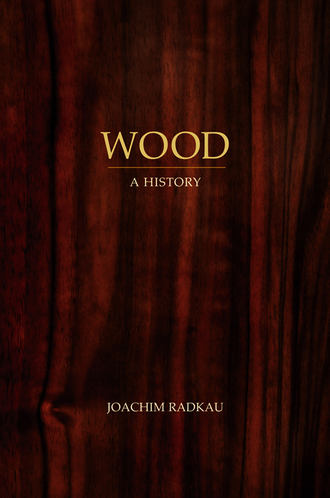Wood. A History
4.9 из 5, отдано 11 голосов

Joachim Radkau
?tzi the iceman could not do without wood when he was climbing his Alpine glacier, nor could medieval cathedral-builders or today's construction companies. From time immemorial, the skill of the human hand has developed by working wood, so much so that we might say that the handling of wood is a basic element in the history of the human body. The fear of a future wood famine became a panic in the 18th century and sparked the beginnings of modern environmentalism. This book traces the cultural history of wood and offers a highly original account of the connection between the raw material and the human beings who benefit from it. Even more, it shows that wood can provide a key for a better understanding of history, of the pecularities as well as the varieties of cultures, of a co-evolution of nature and culture, and even of the rise and fall of great powers. Beginning with Stone Age hunters, it follows the twists and turns of the story through the Middle Ages and the Industrial Revolution to the global society of the twenty-first century, in which wood is undergoing a varied and unexpected renaissance. Radkau is sceptical of claims that wood is about to disappear, arguing that such claims are self-serving arguments promoted by interest groups to secure cheaper access to, and control over, wood resources. The whole forest and timber industry often strikes the outsider as a world unto itself, a hermetically sealed black box, but when we lift the lid on this box, as Radkau does here, we will be surprised by what we find within. Wide-ranging and accessible, this rich historical analysis of one of our most cherished natural resources will find a wide readership.Категория: зарубежная образовательная литература
ISBN: 9780745683577
Правообладатель: John Wiley & Sons Limited
Легальная стоимость: 1132.20 руб.
Ограничение по возрасту: 0+




Комментарии ():